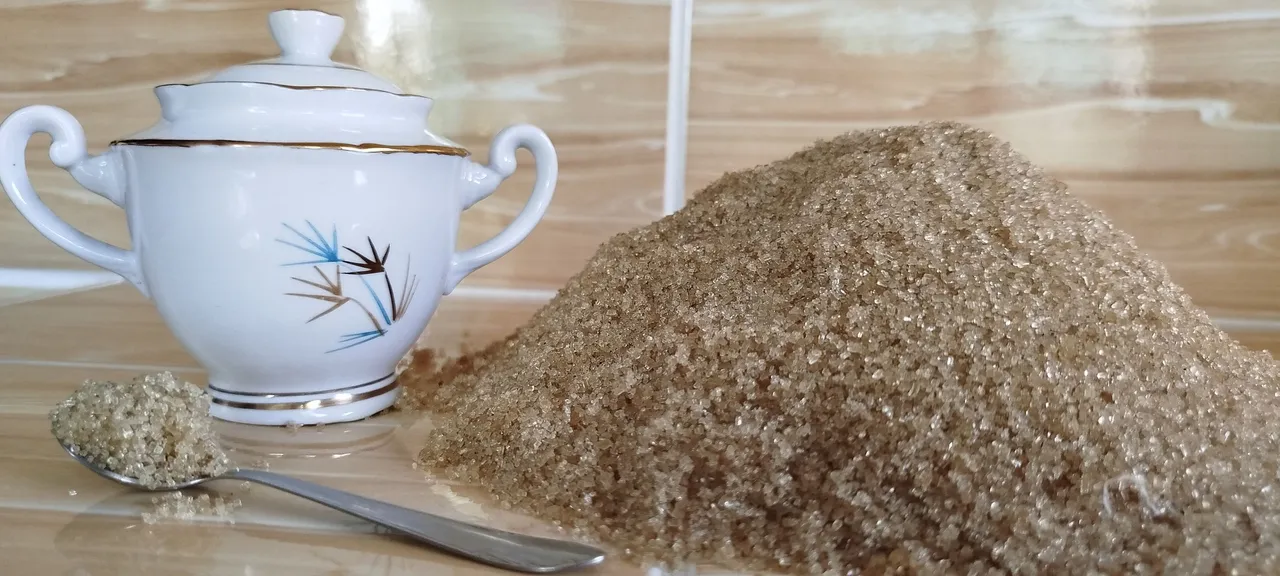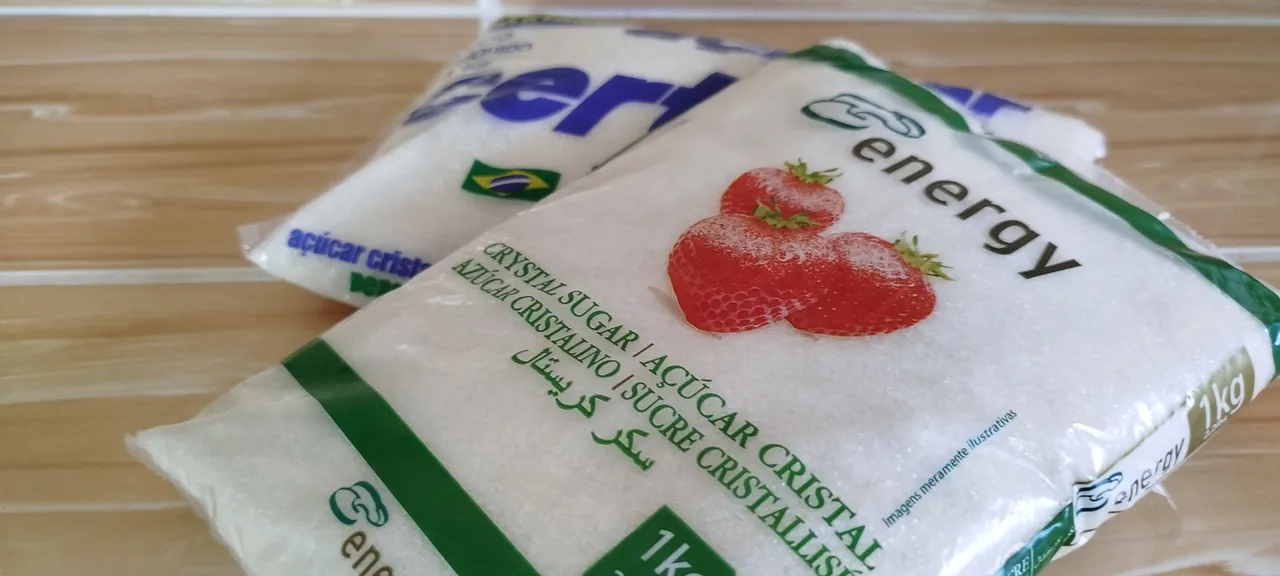

Brown sugar, national production.
Life would be very bitter if we decided to permanently eliminate sugar from our diet. The sweet, together with the bitter, must coexist to achieve the balance that prevents us from falling into monotony... and at the same time, maintain an optimal body weight. Or, at least, a weight with which you feel comfortable.
In my country, we are big consumers of sugar as a general rule. Even when in recent times of economic crisis, until the sweet grain, has begun to be poured. Cuba was the world's largest exporter of sugar until the early 1990s. Nowadays, we have had to import part of this product to sustain domestic consumption. It has been like going from day to night.
But well, now that we are in context, let's get to the point and answer the question. Could you cut out sugar permanently? Explain why or why not.
The influence of this history on our culinary culture is inevitable. For the Cuban, sweet things have to be really sweet. I remember an anecdote when, as a student in a foreign country, I offered some nationals, guava candy in a bar, a typical product of ours. They wondered how it was possible that we could eat something so sweet. For the elaboration of this product, guava pulp and sugar are used in equal parts.
Precisely those 5 years that I studied outside my country showed me that sugar consumption habits can be modified, even without intentionally trying to do so. As I began to consume products with a lower level of sugar than I was used to, my palate began to adapt. Once back in my country, everything seemed overly sweet to me. It's funny how I kept my habits and didn't go back to my old ones. Even more interesting was that the other members of my family began to follow my new habits as well.
At that time, each consumer was sold 10 pounds of sugar, at a modest price, as part of the rationed basket. That's a lot of sugar for just one month. In addition to the subsidized sugar, unlimited sugar could be purchased at a higher price. At the moment, the situation is quite different, and if we had enough sugar then, today it is not enough. Logically, these gaps in the market have been filled by other actors in the economy, although at prices that are not affordable for all pockets.
Sorry, I promised to answer the weekend -engagement topic question and have continued to beat around the bush without answering. Well, in my particular case, I would not completely give up sugar consumption. It is an important source of energy for the functioning of our organism. For the brain to work (and not write more nonsense than I have already made you read), the sweet grain is basic.
On the other hand, it is also true that its consumption in excess can be dangerous. There are limits that we should not exceed in order to stay healthy without having to completely give up the sweet taste on our palate.
For us Cubans, reducing sugar intake may be more difficult, but not impossible. Even if there are those who think that, due to idiosyncrasy, “guarapo”(sugar cane juice) circulates in our veins instead of blood. Sugar is associated with joy, and that is also a trait of our personality that we are not willing to give up. So, according to my “scientifically” proven theory, no Cuban would voluntarily give up eating sugar.
In closing, I turn again to our Cuban sugar history. A phrase that became popular ar the beginning of the last century in the island was “without sugar, there is no country”. At present, the sugar industry is in a clear state of deterioration. It can be said that there is practically no sugar. It is up to all of us who live here not to let this country, which is undoubtedly much more than sugar, die.
I thank our host @galenkp for encouraging reflection and all of you who read me.

Refined sugar, imported from Brazil.

Contenido original de ✏️ Original content by @leopard0
Escrito original en Español ✒️ Translated with DeepL.com (free version)
Imágenes propias 📸 Own pictures
